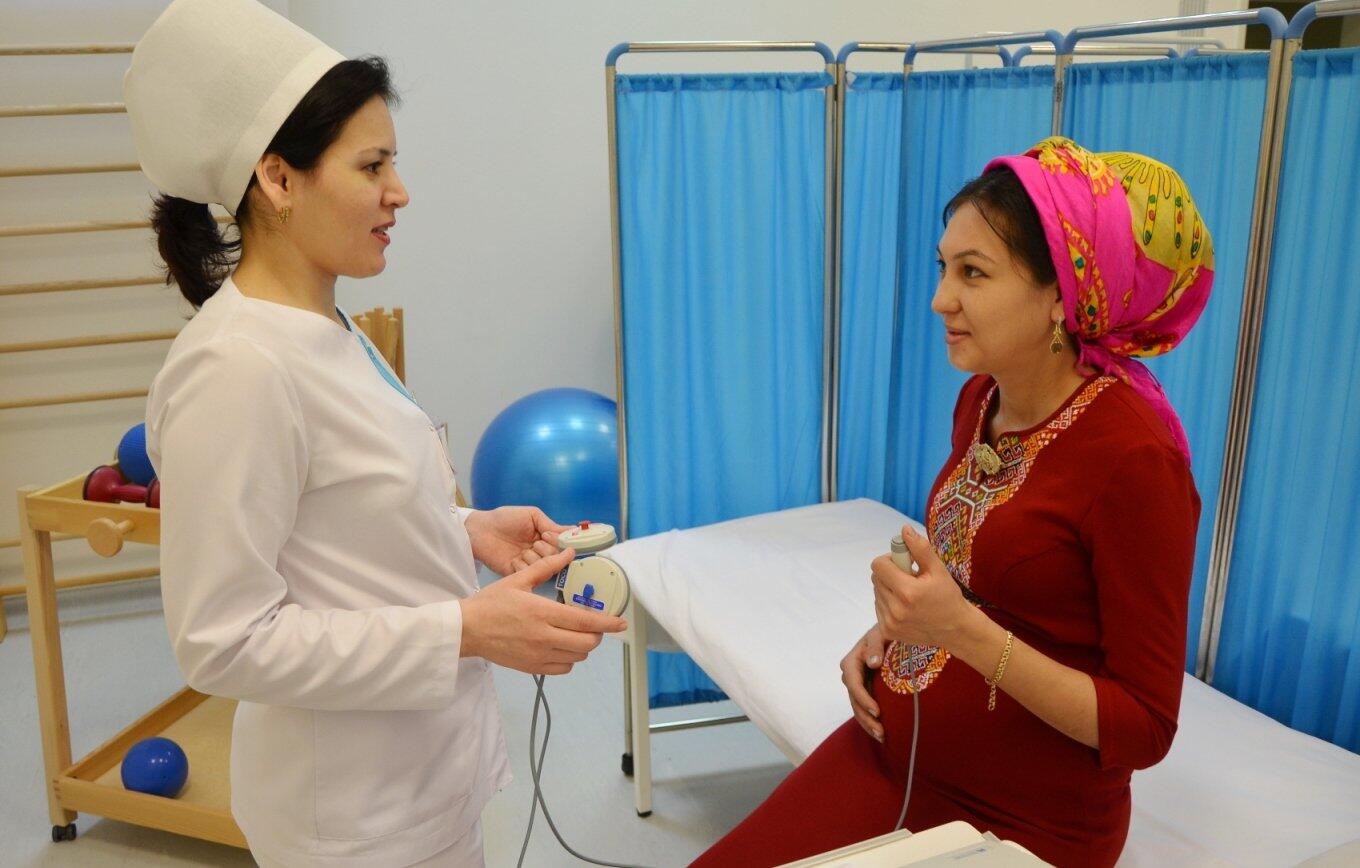ASHGABAT - With support from UNFPA, the Ministry of Health and Medical Industry of Turkmenistan has created a database on existing emergency obstetric care services that will help the government make evidence-driven decisions to improve the institutional capacity for providing quality medical services in this area.
To build the database, an assessment was conducted on the availability of emergency obstetric care services in different parts of Turkmenistan, with a national working group set up and trained to carry this out in the capital and all five provinces. The assessment consisted of three modules, examining human resources, infrastructure and the available emergency obstetric care services.
The findings of the assessment showed that Turkmenistan has 66 basic obstetric service delivery points and 57 points that provide comprehensive emergency obstetric care. Comprehensive emergency obstetric and new-born care, typically delivered in district hospitals, includes all of these basic functions, plus Caesarean sections, safe blood transfusions, hypertensive syndrome care, and care for sick and low-birth-weight new-borns, including resuscitation.
These results are in compliance with the guidelines jointly issued in 1997 by WHO, UNICEF and UNFPA, recommended that for every 500,000 people there should be four facilities offering basic obstetric services and one facility offering comprehensive essential obstetric care.
In order to manage obstetric complications – the lifesaving component of maternity care – a facility must have at least two skilled attendants providing coverage 24 hours a day and seven days a week, assisted by trained support staff. To manage complications requiring surgery, the facilities must have a functional operating theatre, more support staff and must be able to administer blood transfusions and anaesthesia.
Why is this important?
One objective of the Millennium Development Goals is to reduce maternal mortality by 75 per cent between 1990 and 2015. Nearly 65 per cent of maternal deaths worldwide are due to five direct causes – severe bleeding, unsafe abortion, eclampsia, infection and obstructed labour – that can be prevented through the provision of timely and quality emergency obstetric care. That is why increasing the availability, accessibility and quality of emergency obstetric care services is central to UNFPA’s efforts to reduce maternal mortality.
For more information, please contact:
Kemal Goshliyev, Reproductive Health National Programme Officer; goshliyev@unfpa.org
Ene Tuyliyeva, Advocacy Communication Associate; tuyliyeva@unfpa.org
This story originally appeared on the website of the UNFPA Turkmenistan Country Office.



